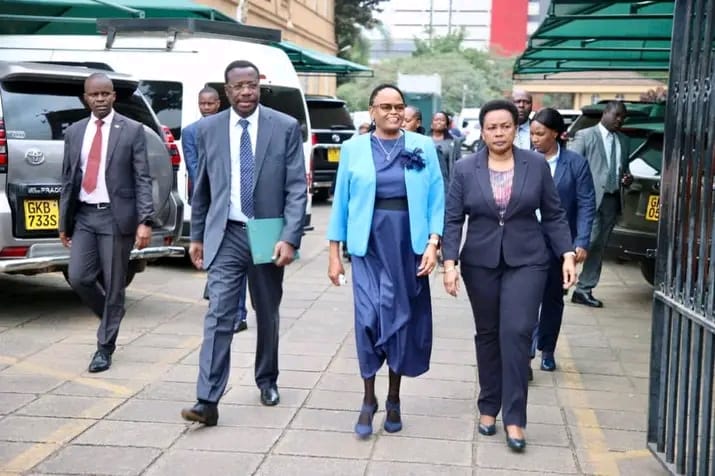
By Irene Mwende
The employment and Labour one of the Superior Courts, which has been a driver for social transformation as envisaged by the Constitution.
Chief Justice and President of the Supreme Court of Kenya Martha Koome, speaking during the event held at the KICC in Nairobi, noted that the mandate of the ELRC is to uphold the dignity and rights of workers and employers, foster harmonious industrial relations, and contribute to the social and economic development of the nation.
Koome congratulated ELRC’s commitment to service delivery with an impressive Case Clearance Rate of 168% in the third quarter of the 2022/2023 financial year and a reduction of case backlog by 18%, which proves the Court as a beacon of efficiency.
The court contributes to economic prosperity by creating a stable and conducive environment for industrial relations and by facilitating dialogue and cooperation between workers and employers, she added.
The Chief Justice went on to say, “ELRC has pushed the boundaries of justice delivery by embracing the multi-door approach and has recognised that justice can be achieved in multiple ways, through mediation, conciliation, and traditional justice systems (AJS).
Consequently, this diverse approach has made justice accessible and also helped to resolve disputes in a timely, amicable, and cost-effective manner, thus saving time and resources for both employers and employees.
Speaking at the same event, Deputy Chief Justice Philomena Mwilu pointed out that the ELRC has a unique place in the administration of justice with its specialised jurisdiction to deal with matters concerning employment and labour relations.
Justice Mwilu highlighted the Judiciary’s strategic vision, Social Transformation Through Access to Justice, which emphasises a people-centred justice approach that places the justice needs and justice problems faced by Kenyans at the centre of the administration of Justice.
“I urge you to engage, to learn, and to share jurisprudence, experiences, ideas, and best practises, for it is through the cross-fertilisation of these ideas, innovations, and approaches that our legal processes, frameworks, and jurisprudence on issues of employment and labour relations will be improved,” she emphasised.
At the same time, Principal Judge Byram Ongaya noted that the Kenya Vision 2030 aims to transform Kenya into a newly industrialising middle-income country, providing a high quality of life in a clean and secure environment, based on its economic, social, and political pillars.
Ongaya further analysed the objectives of the court, including creating and promoting awareness about the role of the Court; stakeholder sharing of best practises and experiences in the employment and labour relations sector; sharing emerging jurisprudence; providing a platform for stakeholders to exhibit innovations, productivity, and service delivery systems and requirements; and promoting harmony and common approaches in human resource management.
“As a Court, we seek to enhance our appreciation, not only to learn new things but also to rediscover new ways of learning for a more just, proportionate, and expeditious resolution of the disputes that are brought before us,” he added.
